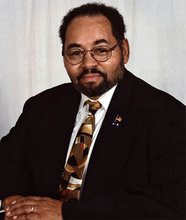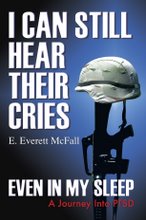 (c) 2007 E. Everett McFall
(c) 2007 E. Everett McFall During one of my depressing low ebb tide moments I wrote:
“
Death is my best buddy, my constant companion, my thoughts, the memories, the flashbacks.
As I dwell in the recesses of the
valley of despair, by choice, I have slumbered in the dark caverns of depression, hiding, withdrawn from reality, seeking pity and reparations because I had internalized that the world owed me something.
Steeped in alcohol and drugs and confined within my self-induced, self-fulfilling prophetic hellish condition and saturated with a constant illusion of hopelessness, I sought to end the anguish, the frustration, the mental torment. My thoughts were focused on freeing my suffering tormented soul by taking own life. Why? Because I felt that my wretched life had no positive direction, no meaning or purpose.
So I kissed steel, and
suckled on a cold blue tube, waiting, anticipating and preparing to welcome the
unforgiving flaming messengers of death. My gun barrel became a lollipop without a sugar coating or a fruit flavored topping; it was however, just an obedient servant poised to release its power and deadly force. The trigger reluctantly maneuvered with resistance as I anticipated the explosive deadly projectile invading my body, searing and burning as it traveled upward to my brain.
Again, ‘Time Stood Still’ as my life flashed by and replayed within my mind. My mind was weak, my spirit was muddled, my odor challenged body was soaked with alcohol and perspiration, my hands shook as the gun barrel irritated my tongue, forcing me to gag. As I withdrew the four inch 357 Colt Python revolver from my mouth, my tongue managed to
‘French’ the barrel tip momentarily as it exited.
My heart attempted to escape from it’s imprisoned cage, and the ringing in my ears became almost deafening. So I slowly repositioned the 357 directly under my chin and angled it backwards for maximum penetration and effectiveness. Agonizing thoughts intruded as I blinked my moistened eyes in an effort to continue without succumbing to my fear. Knowing that some gun shot head wounds liquefy the contact area into
chunks and/or a bloody, flakey, oatmeal type paste, I didn’t want to think too long about pulling that trigger.
So I smiled, as I had visions of others cleaning up the chunks of my brain and the massive pool of
jellied congealed blood.” HA – HA HA –HA aaah. How morbid is that? I snickered. My head throbbed, my soul was in pain. Then I bowed my head and called out for help.
A Plea From the Valley O my God, I seek refuse in you Father
Against Satin the devil, spawn of evil.
O Lord of the worlds, I call unto thee
For guidance and discerning wisdom.
Father protect me from harm, as only
You can, from the enemy within & without.
Devine Creator; please grant unto me health,
Peace of mind, happiness and prosperity.
Most Merciful, Most Beneficent God, Lord
Bless me with enduring strength as I struggle
To find my way back to sanity and salvation
Within All your Books, and from Geneses to Revelation.
Thank You, Thank you Lord for giving me one more day. . .
Feedback wanted!!
Listen to our weekly podcast on;
http://InternetVoicesRadio.Com "Archives", E. Everett McFall










